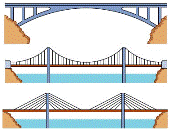Civil and Environmental Engineering, Department of

Department of Civil and Environmental Engineering: Faculty Publications
ORCID IDs
http://orcid.org/0000-0002-2937-1732
http://orcid.org/0000-0002-3814-3555
Document Type
Article
Citation
COMMUNICATIONS BIOLOGY | (2019) 2:81 | https://doi.org/10.1038/s42003-019-0326-5 | www.nature.com/commsbio 1/9
Abstract
Extracellular DNA in the environment may play important roles in genetic diversity and biological evolution. However, the influence of environmental persistent organic contaminants such as organochlorinated pesticides (e.g., hexachlorocyclohexanes [HCHs]) on the enzymatic degradation of extracellular DNA has not been elucidated. In this study, we observed expedited enzymatic degradation of extracellular DNA in the presence of α-HCH, β-HCH and γ-HCH. The HCH-expedited DNA degradation was not due to increased deoxyribonuclease I (DNase I) activity. Our spectroscopic and computational results indicate that HCHs bound to DNA bases (most likely guanine) via Van der Waals forces and halogen bonds. This binding increased the helicity and accumulation of DNA base pairs, leading to a more compact DNA structure that exposed more sites susceptible to DNase I and thus expedited DNA degradation. This study provided insight into the genotoxicity and ecotoxicity of pesticides and improved our understanding of DNA persistence in contaminated environments.


Comments
The Author(s) 2019